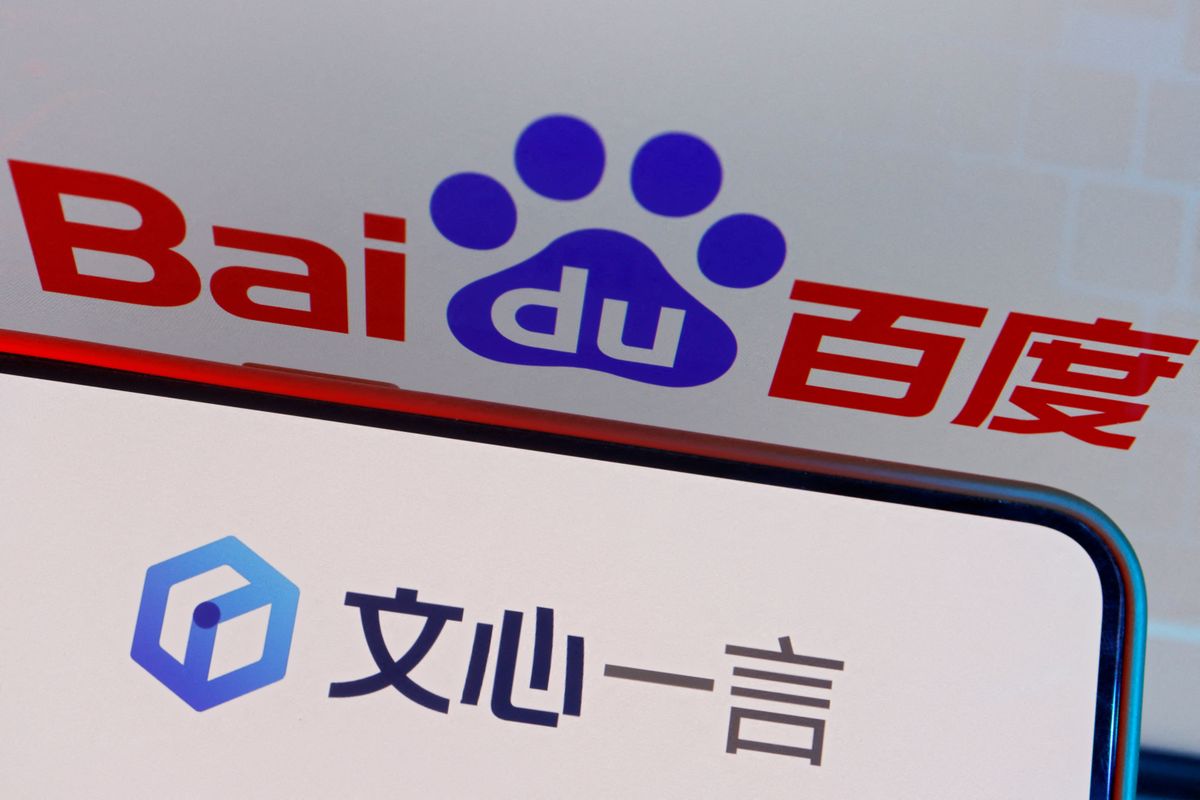AI breakthrough in China – the first wave of generative services are approved for the public
China has now given the green light to the first batch of generative AI services for public use.

A few minutes every morning is all you need.
Stay up to date on the world's Headlines and Human Stories. It's fun, it's factual, it's fluff-free.
The backstory: Generative artificial intelligence (AI) is the talk of the town, and OpenAI's ChatGPT is leading the pack. But ChatGPT isn't actually available in China. With this, Chinese tech giants have jumped on the bandwagon themselves, announcing plans to launch their own generative AI services for the world's largest internet market. And while all this competition heats up, governments worldwide are grappling with how to regulate this new AI tech.
Baidu, a major player in China's tech scene, is known for its AI development, and it’s also making strides in cloud computing and self-driving technology. Plus, it introduced ERNIE Bot, its answer to ChatGPT, which grabbed the world’s attention in March. But the company isn't alone – Alibaba and Tencent are also stepping up their games, showing off their own innovative AI models.
More recently: In April, the Cyberspace Administration of China (CAC) laid down the law and said any new AI services that want to go live need to pass a security check first. Then, in June, China's President Xi Jinping and government officials underscored the importance of improving security for AI and network data.
In July, China's regulators finished writing new rules for how AI should be used. These rules are a big deal because they aim to ensure AI is used responsibly and in accordance with the country's policies and values. The final version was more flexible compared to the first draft in April, which means regulators are trying to balance rules with innovation.
The development: People familiar with the matter reported to Bloomberg that China has now given the green light to the first batch of generative AI services for public use, spanning from newcomers to the big players. This is a big deal for Chinese giants like Baidu and SenseTime, as they can now openly compete with giants like Microsoft and OpenAI.
Baidu shared in a post on its WeChat account that ERNIE Bot would be released to the public on August 31. Alongside this, the company is gearing up to launch a suite of AI applications showcasing generative AI's core capabilities, including understanding, generation, reasoning and memory.
Beyond Baidu, other players are also entering the arena. The Chinese Academy of Sciences secured government approval for its AI service TaiChu, according to a source, although it's not yet accessible. Even ByteDance, the company behind TikTok, is jumping in with its own AI chatbot. Smaller startups like Baichuan Intelligence, Zhipu AI and MiniMax also got the government's nod.
Key comments:
“We are thrilled to share that ERNIE Bot is now fully open to the general public starting August 31,” said Baidu in a statement on Thursday. “In addition to ERNIE Bot, Baidu is set to launch a suite of new AI-native apps that allow users to fully experience the four core abilities of generative AI: understanding, generation, reasoning, and memory.”
“The final version of the law significantly watered down many stringent requirements in the earlier draft released by the CAC, sending a strong signal of cautious and tolerant approach in the oversight of generative AI,” said Angela Zhang, director of the Center for Chinese Law at the University of Hong Kong in July.
“This means more opportunities will be in enterprise-facing applications, and people will be more cautious about consumer-facing entrepreneurship,” said Frances Du, founding partner of J Ventures. “However, now that there are seven agencies involved, that will make it harder to gauge the specific execution style.”




Comments ()